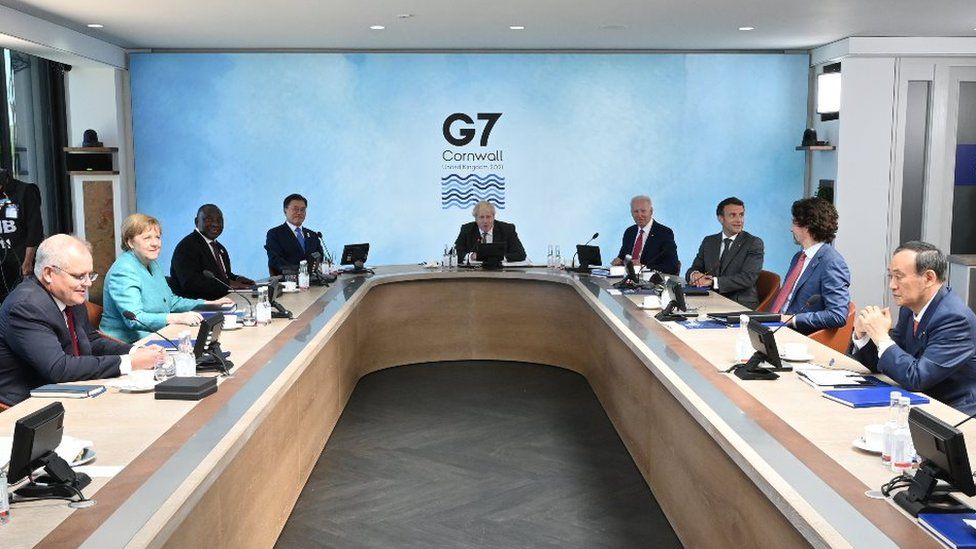The G7 nations have agreed to step up action on climate change, renewing a pledge to raise $100 billion a year to help poor countries cut emissions.
After a summit in Britain, G7 leaders also promised to help developing countries move away from coal.
UK Prime Minister Boris Johnson, who hosted the three-day meeting, said on Sunday: “We were clear this weekend that action needs to start with us.”
However, some environmental groups said the promises lacked detail.
Developed countries agreed in 2009 to contribute $100 billion a year in climate finance to poorer countries by 2020. But the target was not met, in part because of the Covid pandemic.
While the G7 agreed to raise contributions to meet the target, Teresa Anderson, from Action Aid said: “The G7’s reaffirmation of the previous $100 billion a year target doesn’t come close to addressing the urgency and scale of the crisis.”
Catherine Pettengell, director at Climate Action Network, told Reuters news agency: “We had hoped that the leaders of the world’s richest nations would come away from this week having put their money their mouth is.”
Climate change has been one of the key themes at the summit in Carbis Bay, Cornwall.
The G7 – which include the UK, US, Canada, Japan, France, Germany and Italy – committed to keeping the projected global temperature rise to 1.5C.
In the final statement they said: “We reaffirm the collective developed countries goal to jointly mobilise $100bn/year from public and private sources, through to 2025.”
The commitment to help nations move away from coal power, which initially came from the White House, includes a plan to phase out coal burning unless it includes carbon capture technology.
The G7 will end the funding of new coal generation in developing countries and offer up to £2bn ($2.8bn) to stop using the fuel.
Coal is the world’s dirtiest major fuel and ending its use is seen as a major step by environmentalists, but they also want guarantees rich countries will deliver on previous promises to help poorer nations cope with climate change.
In a separate announcement, the UK joined Germany and the US to declare it would spend hundreds of millions of pounds protecting the world’s vulnerable communities from climate change.
The funding would “enable quicker responses to extreme weather and climate-linked disasters in countries bearing the brunt of climate change,” UK Foreign Secretary Dominic Raab said.
Climate change is the Earth’s average temperature is about 15C (59F) but has been much higher and lower in the past.
There are natural fluctuations in the climate but scientists say temperatures are now rising faster than at many other times.
This is linked to the greenhouse effect, which describes how the Earth’s atmosphere traps some of the Sun’s energy.
(BBC NEWS)

